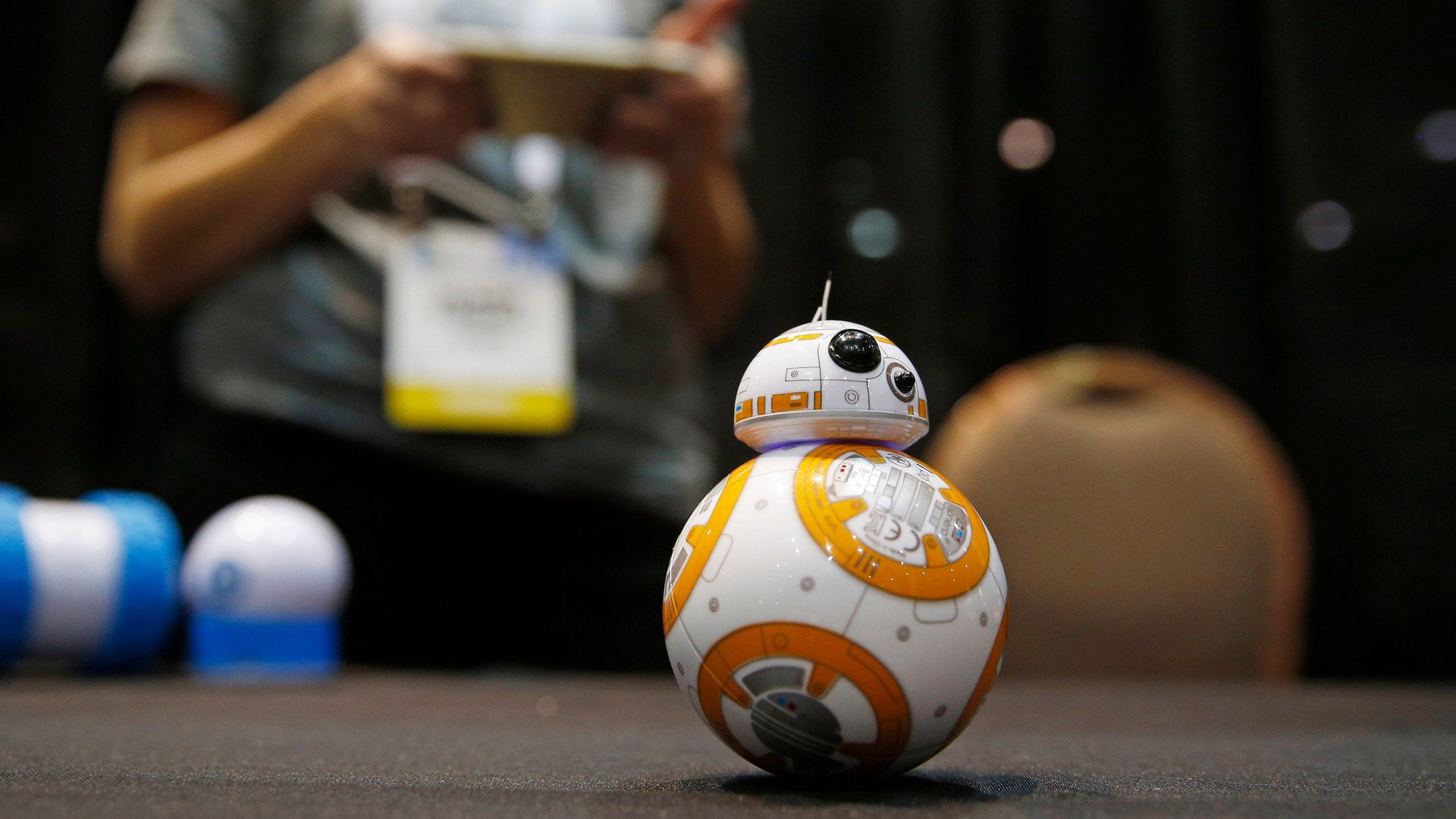Learn to stop worrying and love the smart machines you’ll be working alongside in the future
Many young college graduates find the working world to be a scary place. That goes double in light of recent technological changes. As computers take over customer service, filing and other tasks associated with entry-level jobs, young people today may find it harder to gain a foothold. And in the long term, experts from Oxford University professors to Yale economist and Nobel laureate Robert Schiller have warned that automation and artificial intelligence could make many professions obsolete. That’s not exactly the stuff of inspiration for young people who are at the very beginning of their careers.


Many young college graduates find the working world to be a scary place. That goes double in light of recent technological changes. As computers take over customer service, filing and other tasks associated with entry-level jobs, young people today may find it harder to gain a foothold. And in the long term, experts from Oxford University professors to Yale economist and Nobel laureate Robert Schiller have warned that automation and artificial intelligence could make many professions obsolete. That’s not exactly the stuff of inspiration for young people who are at the very beginning of their careers.
But the future isn’t so dismal, as we write in our new book, Only Humans Need Apply: Winners & Losers in the Age of Smart Machines. While it’s true that AI will take over many job tasks, young people can prepare for brilliant careers by thinking now about how their strengths will work in tandem with the rise of smart machines.
In the years ahead, everyone from doctors, lawyers and scientists to journalists, marketers and truck drivers will find themselves working alongside cognitive technologies. Computers are becoming increasingly capable of making decisions, taking complex actions, and performing “knowledge work”–which we can loosely define as producing value by processing information as opposed to physical exertion. So rather than try to find those realms of work that won’t be touched by machines, instead consider what you can bring to your partnership with them. What human capability will remain essential to getting the work done?
There are five basic ways that we see people striking up productive relationships with the smart machines arriving in their workplaces.
Stepping in means understanding the workings of smart machines and keeping them humming day-to-day. Insurance underwriters and bank credit analysts already do this to a substantial degree. The machines make the everyday decisions, but the humans handle exceptions and improvements to algorithms and rules. Stepping-in strengths also include the ability to make sense of data and decisions, communicate them to others, and intervene when machine logic falls short.
Stepping up, typically a managerial job, is for those who can see the big picture. They understand how work processes should be redesigned based on new technological capabilities, and what higher-level responsibilities human workers could take on if they were better supported by machines. Hedge fund manager—a highly paid role, of course—is a prototypical example. All the decisions about specific stocks and bonds to buy are made by machines, but a human manager oversees the portfolio and determines whether things are going well. In a completely different sector, at Pixar, managers constantly revisit work processes to find ways to relieve animators of tedium and let them invest more time in creative work.
Stepping forward involves developing the next generation of smart machines and bringing them to market. They may be AI programmers, marketers, or support personnel. Many of these jobs will be for vendors such as IBM, creator of Watson; Facebook, which is constantly refining its algorithms, and ReThink Robotics, which has built a highly flexible robot named Baxter that can transition easily to new manual tasks.
If these three ways of “stepping” all seem to favor tech aficionados, the latter two may be more suited to humanities types. Stepping aside is for people whose strengths fill in for what computers are still lousy at—ranging from creativity and empathy to manual dexterity. Playwrights and personal shoppers step aside, and so do plumbers. Diplomats step aside, and so do dentists.
Stepping narrowly means mastering a domain of knowledge that is so specialized or and esoteric that no one sees it as a rich target for automation. Thus, while the legal profession is being winnowed down by e-discovery and other labor-saving software, an expert in equine law, drone regulation or transgender discrimination can prosper as a “go-to” expert in a fact-intensive but rapidly evolving field.
One implication of these five viable paths is that not every young person needs to be pushed into STEM majors. While skills in science, technology, engineering, and math can never hurt, much of human work will increasingly draw on the knowledge instilled by study of philosophy, literature, history, and other disciplines founded on the human condition.
As you anticipate your role in an economy invaded by smart machines, here’s one last piece of advice. Avoid working for any employer you see busily automating without augmenting—that is, replacing people with smart machines rather than using those machines to leverage people’s talents. To survive, companies will need to keep imagining the next big thing, not just produce yesterday’s offering more efficiently–and they’ll need you to keep honing the talents that machines can’t replace.